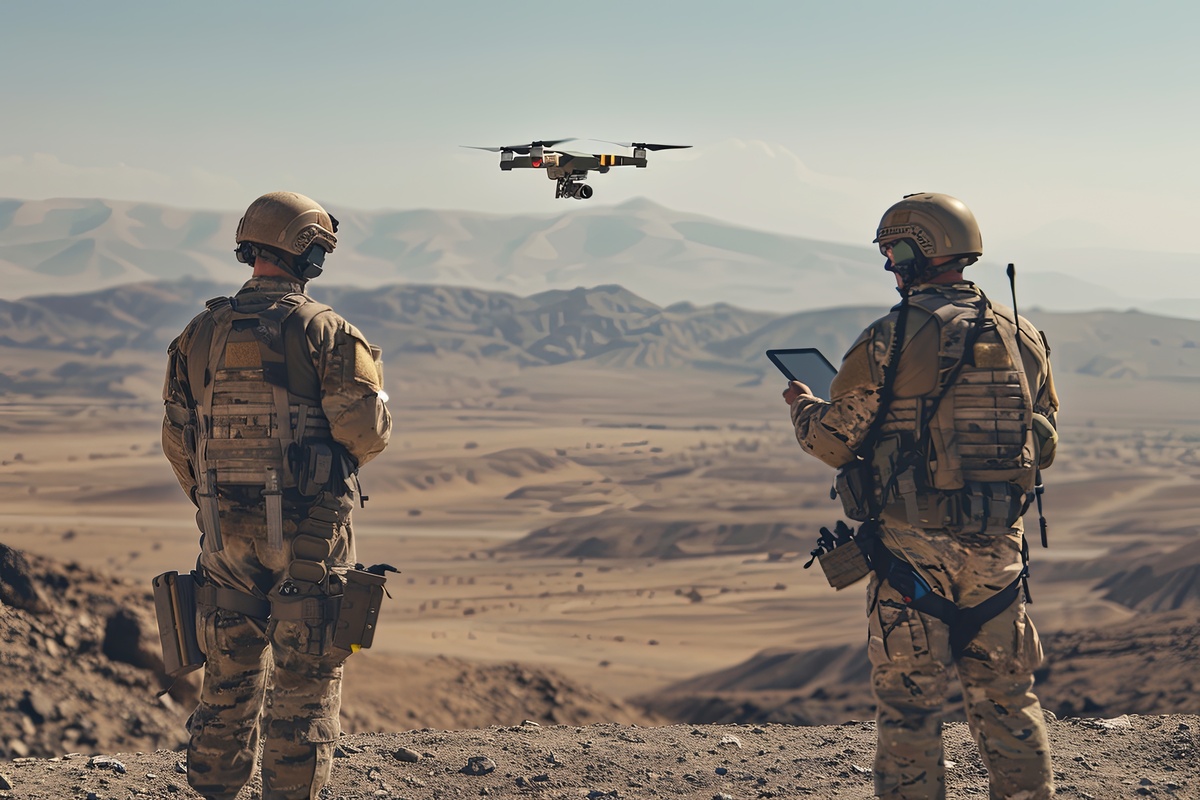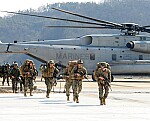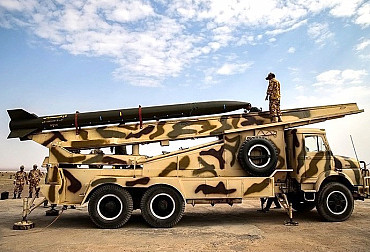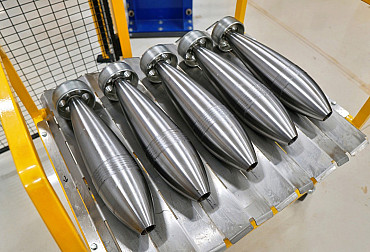USA continues campaign against terrorism: Al-Qaida affiliate leader killed in Syria
A US-led drone strike on Friday targeted and killed a senior militant associated with an al-Qaida-linked group in northwestern Syria. The attack, carried out in the Jabal al-Zawiya area of Idlib province, resulted in the death of Abu Abdul Rahman Makki, a prominent leader of the militant faction Horas al-Din, or "Guardians of Religion." Makki was struck while riding a motorcycle, according to the U.S. military and various war monitors.

The operation marks the latest in a series of strikes by the U.S.-led coalition, which was originally established to combat the Islamic State group but has since broadened its focus to include other extremist factions in the region. The U.S. Central Command (CENTCOM) confirmed the successful strike, describing it as a "kinetic strike" aimed at neutralizing a significant threat.
A calculated strike against a high-profile target
Abu Abdul Rahman Makki, a Saudi national, played a crucial role within Horas al-Din, a group that has emerged as a haven for hardcore al-Qaida members. These members splintered from Hayat Tahrir al-Sham (HTS), the most formidable insurgent group in Idlib province, due to ideological and strategic differences. Makki's responsibilities included overseeing terrorist operations from Syria, making him a key figure in the group's leadership structure.
"Makki's death is a significant blow to the operational capabilities of Horas al-Din," said CENTCOM commander Gen. Michael Erik Kurilla. "CENTCOM remains committed to the enduring defeat of terrorists who threaten the United States, its allies and partners, and regional stability." The strike reflects the U.S.'s ongoing strategy to dismantle the leadership of extremist groups operating in Syria and beyond.
The evolving threat in Idlib province
The Idlib province remains one of the last major strongholds of opposition forces in Syria. Over the years, it has become a refuge for various extremist groups, including remnants of al-Qaida and its affiliates. Horas al-Din, in particular, has gained notoriety for harboring al-Qaida loyalists who have refused to align with the more locally focused and pragmatic Hayat Tahrir al-Sham.
The Britain-based Syrian Observatory for Human Rights, a war monitoring group, corroborated the details of the strike and identified Makki as a former leader of the now-defunct extremist group Jund al-Aqsa. According to local media activist Kenana Hindawi, the drone strike involved two missiles that directly targeted Makki's motorcycle, ensuring minimal collateral damage and a high success rate for the operation.
This is not the first time the U.S. has targeted Horas al-Din in Idlib. Last year, a similar drone strike killed two other members of the group, underscoring the persistent threat they pose and the continuous efforts by the U.S. to mitigate this threat. The death of Makki, who had previously been imprisoned by Hayat Tahrir al-Sham, highlights the complex interplay of rivalries and shifting allegiances among insurgent groups in the region.
Strategic implications and future outlook
The elimination of Makki could lead to further destabilization within Horas al-Din, potentially prompting power struggles or leadership changes. For the U.S. and its allies, such strikes serve not only as tactical victories but also as part of a broader strategy to erode the operational capabilities of extremist networks that can project violence beyond Syria's borders.
However, the persistent presence of these groups in Idlib poses ongoing challenges for regional security and stability. While the U.S. remains focused on counter-terrorism efforts, the broader geopolitical landscape in Syria, influenced by various state and non-state actors, continues to complicate the path to lasting peace.
For now, the U.S. remains committed to using targeted strikes as a means to disrupt and dismantle the leadership and infrastructure of terrorist organizations in Syria. The death of Abu Abdul Rahman Makki represents a significant, albeit partial, victory in this ongoing campaign.
Conclusion
The recent drone strike in Idlib is a stark reminder of the volatile situation in Syria and the continuing efforts of the U.S.-led coalition to combat extremist threats in the region. As the dynamics of conflict evolve, so too does the strategy of those committed to defeating terrorism. With the elimination of another high-profile militant leader, the coalition sends a clear message: there is no safe haven for those who seek to spread terror and violence.










